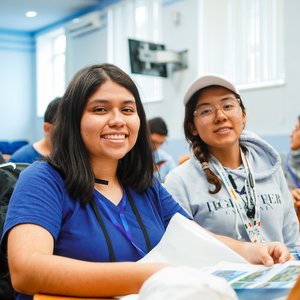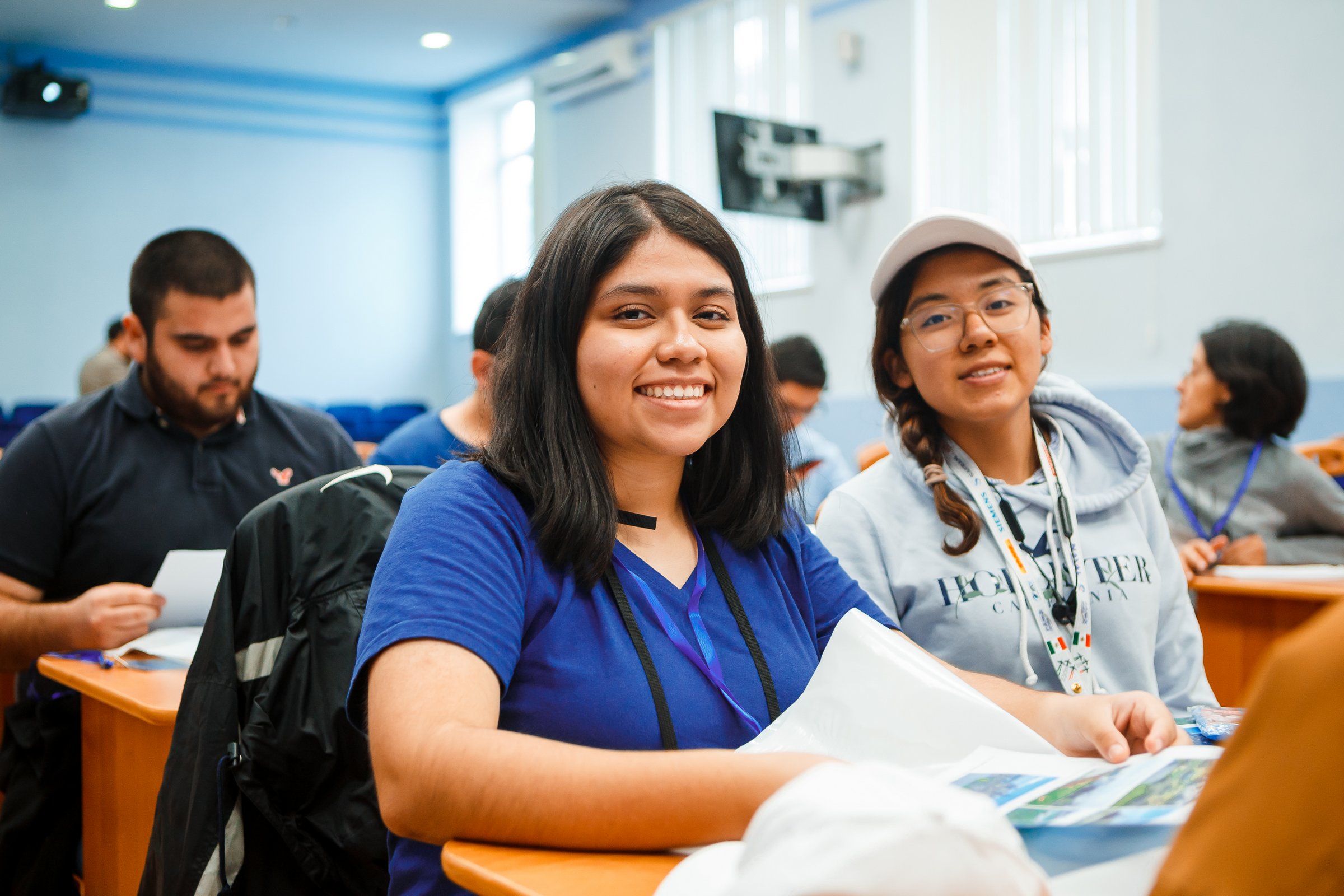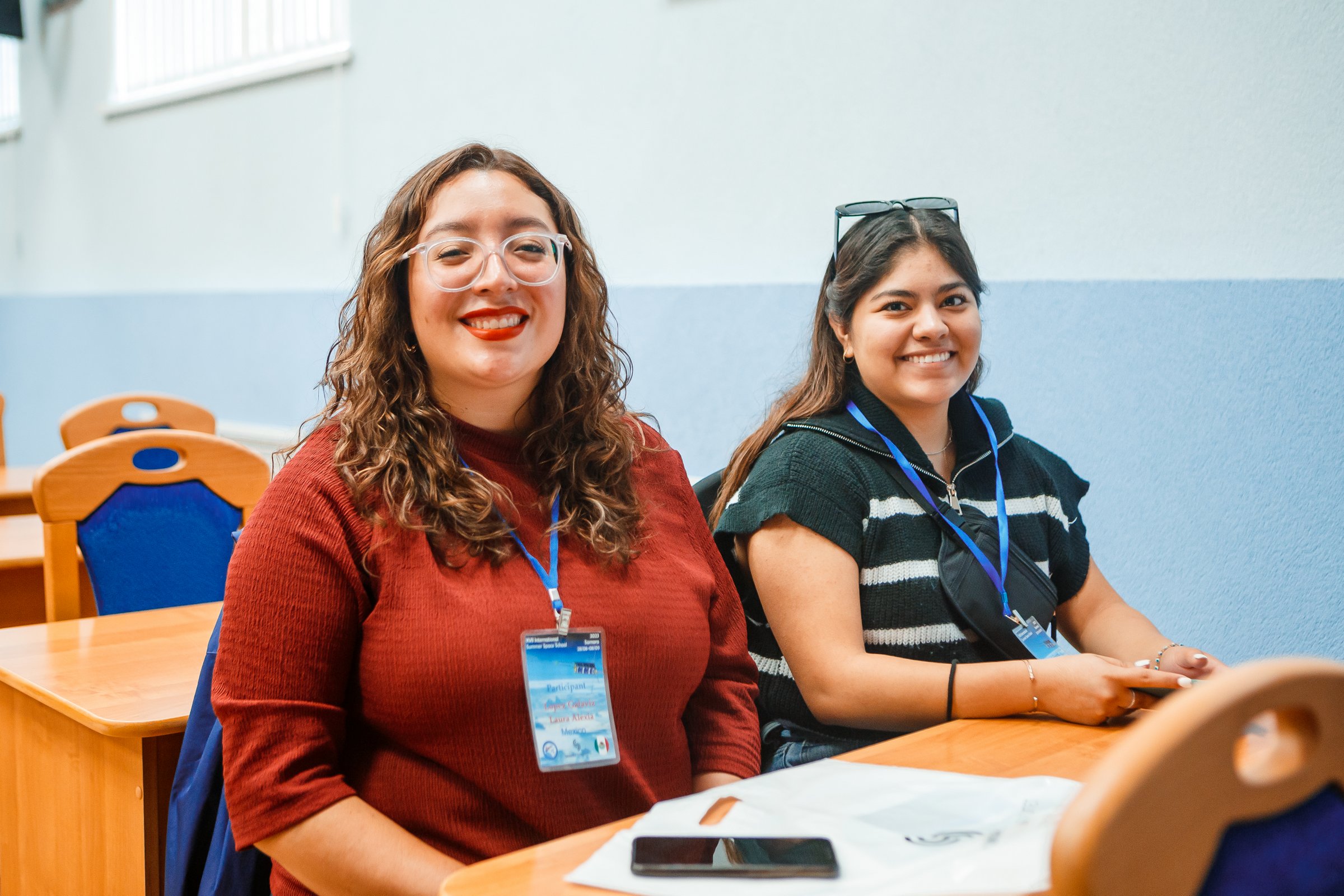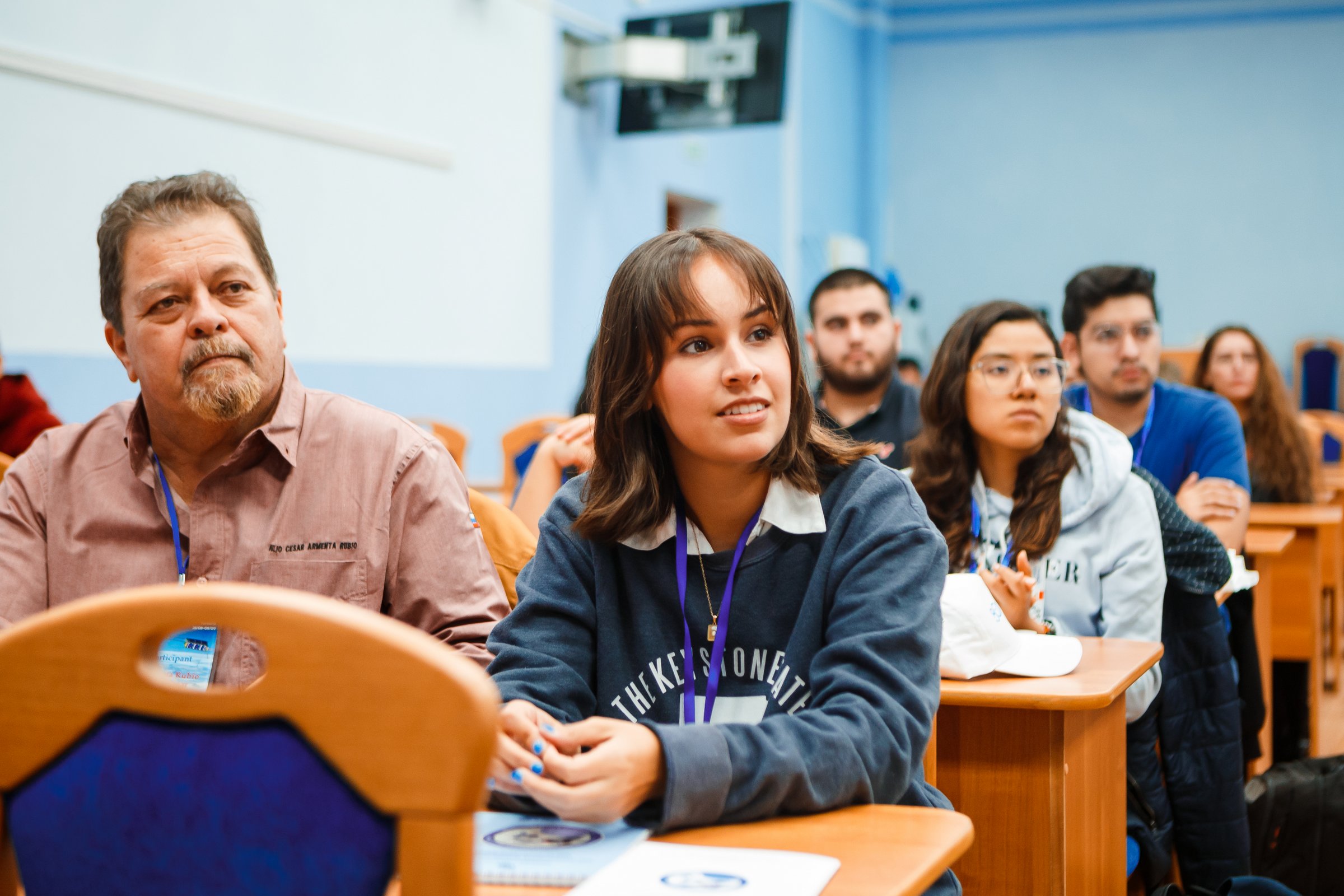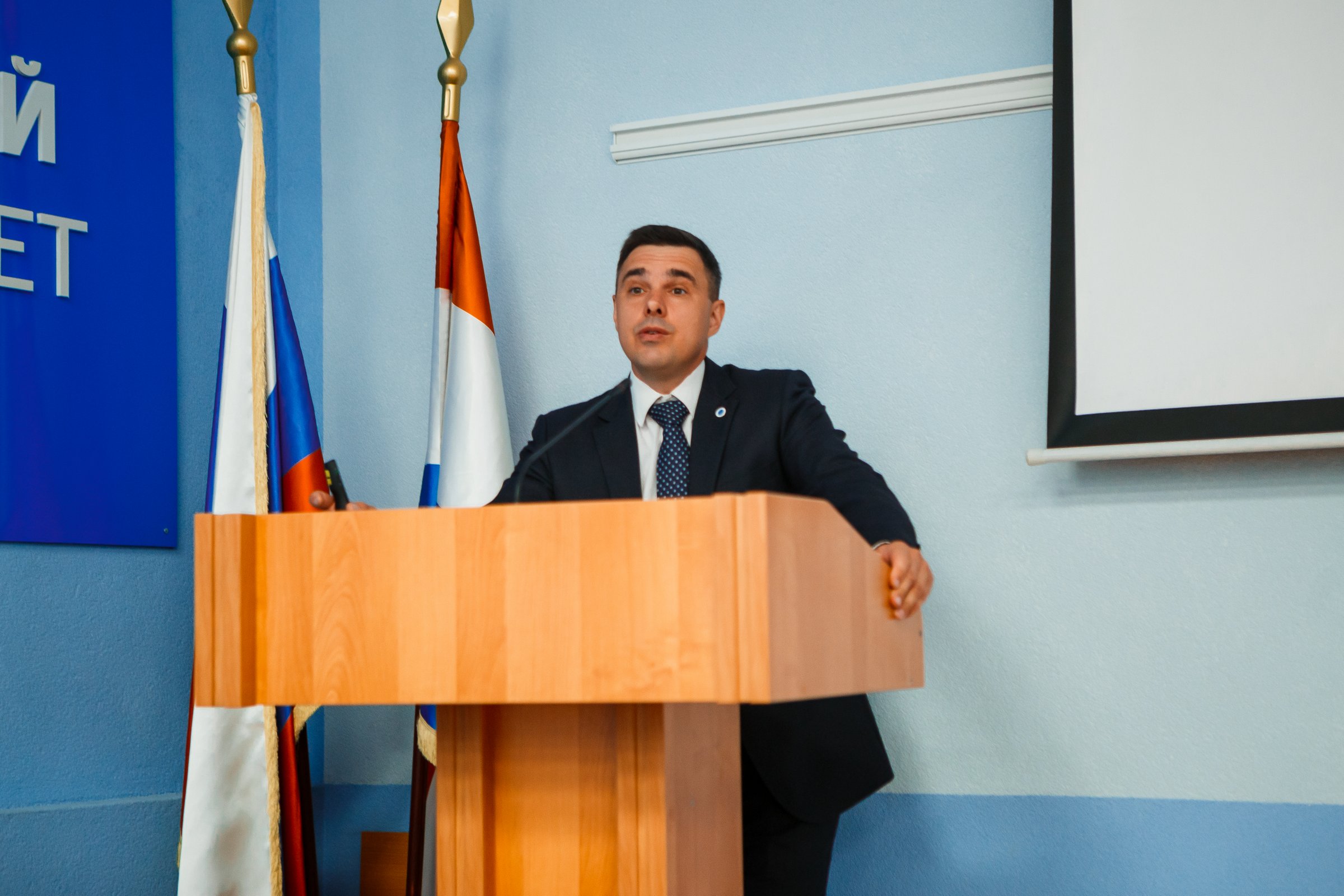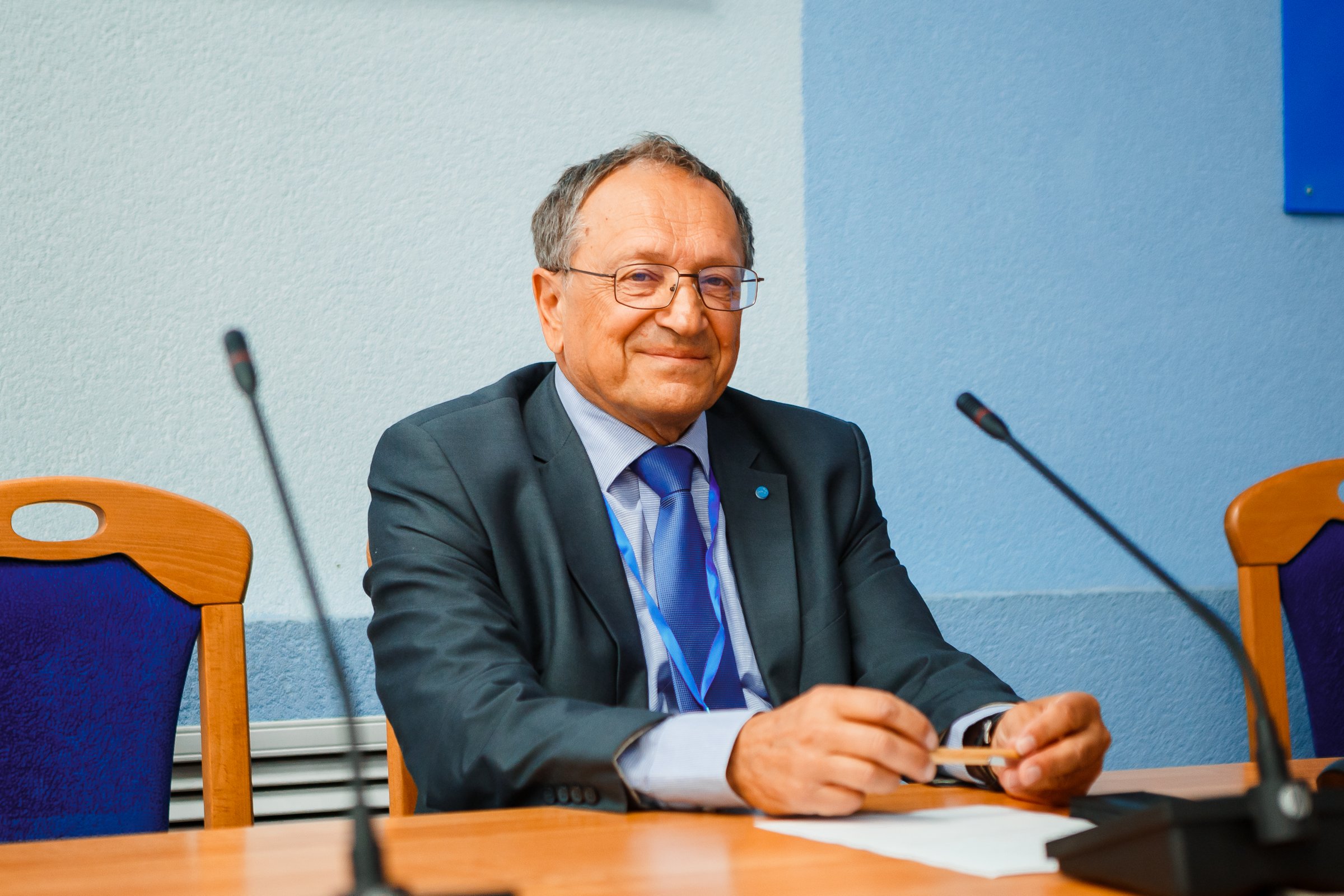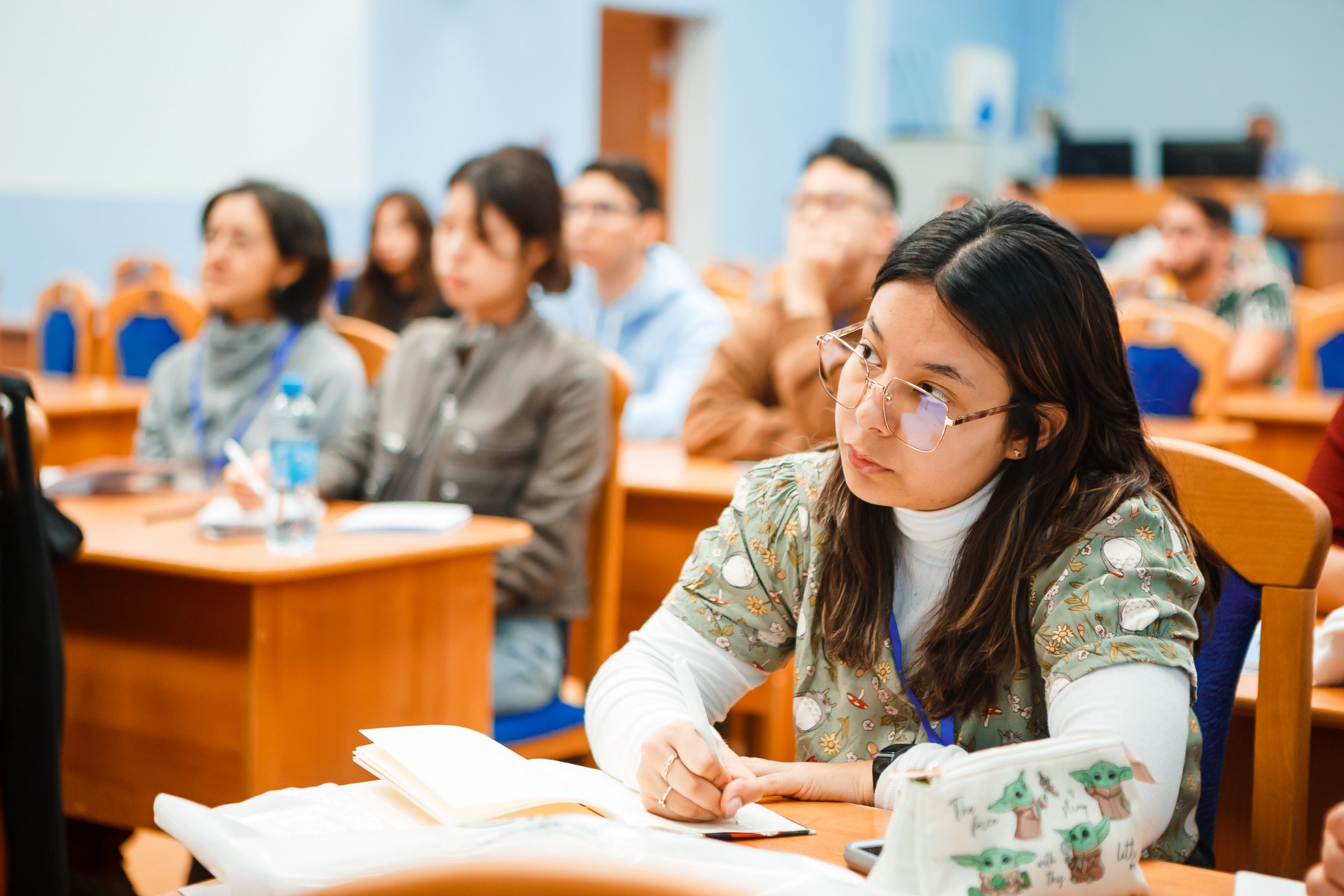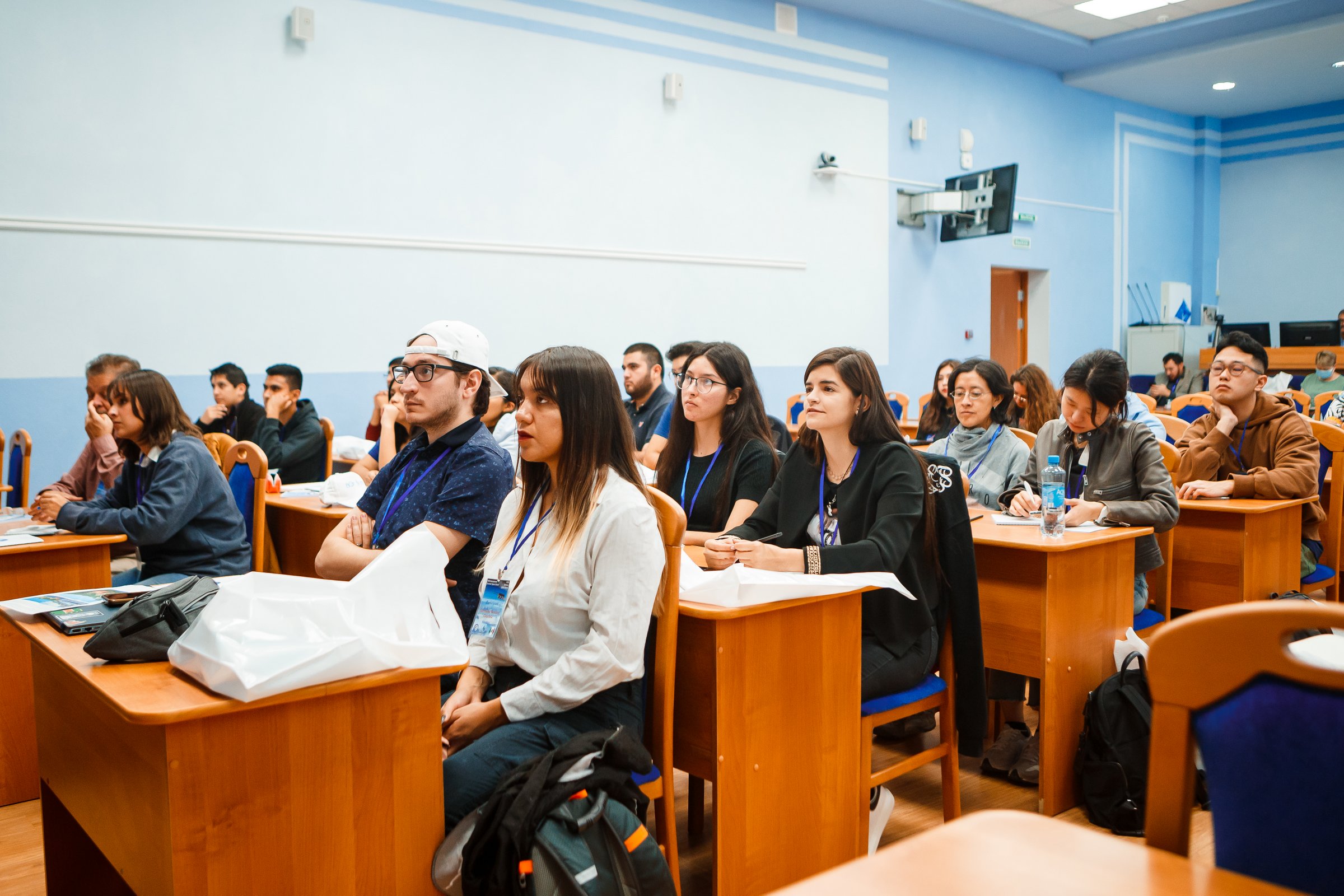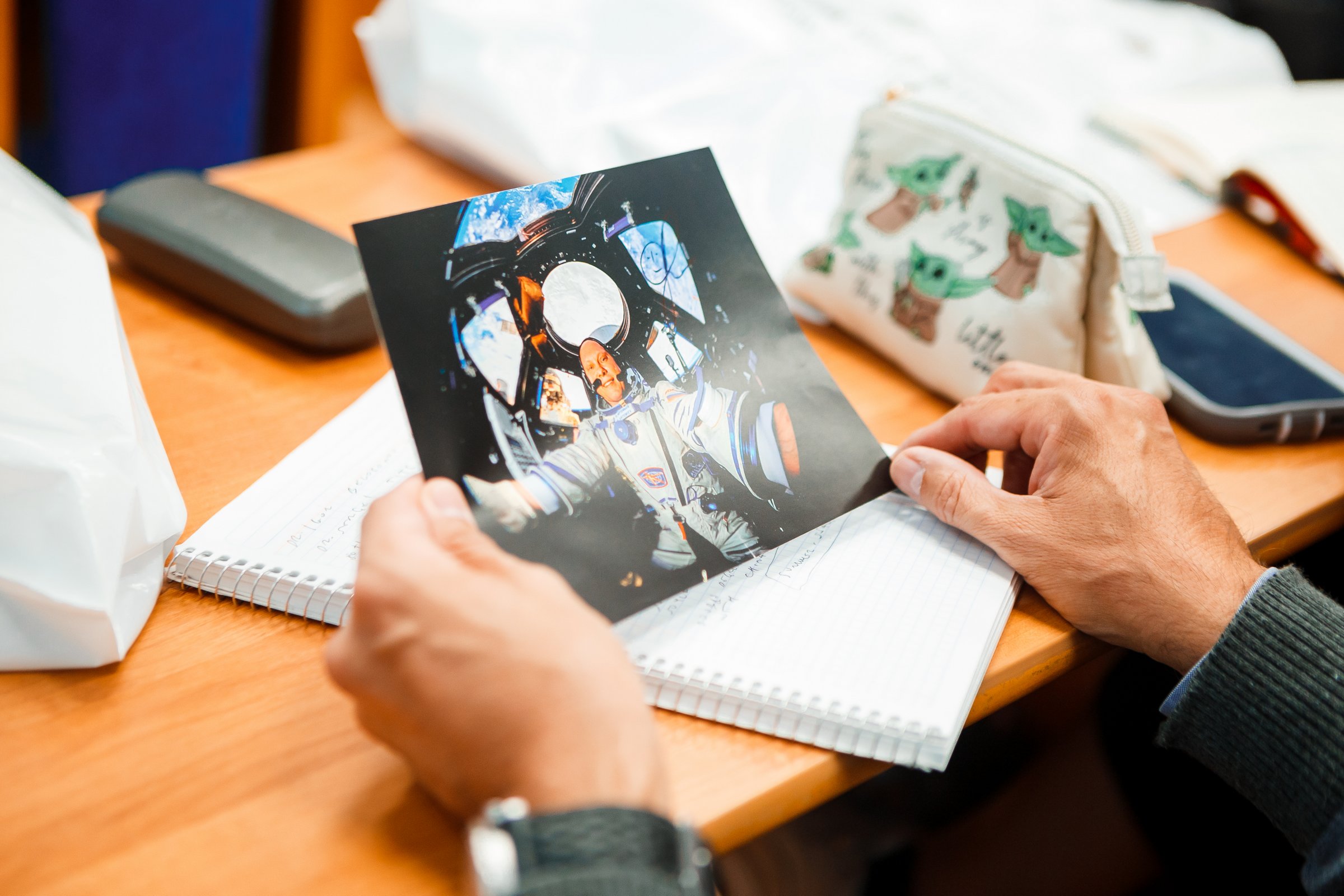The participants were greeted by the Head of the Department of International Activities Sergey Tits and the Head of the International Summer School, Head of the Interuniversity Department of Space Research, Professor Igor Belokonov.
Sergey Tits told the students of the school about the Samara University, its history, closely related to the development of Russian cosmonautics, as well as about modern space projects of the University.
Professor Igor Belokonov noted that the first summer space school was held exactly 20 years ago – in 2003, and was dedicated to the youth project of the European Space Center – YES2. The project involved the deployment of a 30-kilometer cable system in orbit to deliver a light capsule to Earth. Now the format of the Summer School involves the work of international groups on projects of space missions of nanosatellites.
"This year, the International Summer Space School is dedicated to three significant dates of world cosmonautics at once – the 35th anniversary of the flight of the Energia-Buran space complex, the 60th anniversary of the flight of the first female cosmonaut Valentina Tereshkova and the 25th anniversary of the creation of the International Space Station. 21 students from six countries came to Samara to study at the space school – students from various universities, as well as young scientists and engineers from Mexico, Bolivia, Colombia, Costa Rica, Ecuador, Peru and two students at the Moscow Aviation Institute – citizens of the Republic of Korea. Within two weeks, the participants of the school will listen to lectures by leading scientists of the University and consolidate their knowledge in practical classes, which will be held on the basis of three centers of the Interuniversity Department of Space Research – the Nanosatellite Flight Control Center, the Nanosatellite Testing Center and the Nanosatellite Technology Center. During the second week, the focus of the School's work will be on team project work. The participants of the School, divided into teams, will take part in the pre-project analysis of scientific missions of space nanosatellites," said Professor Igor Belokonov.
The previous, XVI International Summer Space School was held at Samara University in 2021. It was attended by 37 young people from Mexico, Egypt, India and Ethiopia. In total, at that time, the University received more than 500 applications for Summer School from students from 18 countries.
As Igor Belokonov noted, the Summer School classes, despite their short duration, will allow students to get the most complete idea at this stage about the process of creating a nanosatellite: from the physical processes of the spacecraft functioning to the basics of developing onboard systems and receiving information from space. Practical classes will be devoted to modeling the movement of spacecraft in orbits, studying test benches and the principles of working with them, processing data from inertial sensors that are installed on nanosatellites, as well as receiving data from operating satellites.
Classes at the school will end with the defense of completed project work before a commission of experts.
During their stay in Samara, foreign students and engineers will get acquainted with the beauties of Samara, they will visit the Samara Space Museum and the Sakharov Technical Museum in Togliatti, they will take a boat trip along the Volga.
For reference:
The International Summer Space School "Advanced Space Technologies and Experiments in Space" is organized by Samara University with the aim of developing international cooperation and creating a unified educational space in the field of advanced space technologies. The School has been held since 2003, during which time it has become a powerful educational project that allows talented young people from different parts of the world to gain new knowledge and competencies in the field of space technologies and take part in project work as part of international teams. Over the past years, more than 500 young people from 45 countries have been trained at the School.
The School is supported by the Volga Branch of the Russian Academy of Cosmonautics named after K.E. Tsiolkovsky, as well as the International Astronautical Federation (IAF), of which Samara University is a member. Earlier, for several years, the UN Office for the Peaceful Uses of Outer Space allocated grants to pay for travel to Samara for individual students from developing countries.
